There are many issues that can affect industrial vacuum pumps and prevent them from working effectively. If not sorted quickly they can lead to damage or a complete breakdown. This can lead to having to stop production, which leads to a loss of revenue. As a business owner or manager, you need to avoid unnecessary downtime or loss of production.
Problems to look out for
Vacuum pumps are like any mechanical device and can experience various problems. Some common issues associated with industrial vacuum pumps include:
- Loss of Vacuum: Vacuum pumps are designed to create and maintain a vacuum within a system. However, they may experience a loss of vacuum due to leaks in the system, worn seals or gaskets, or improper maintenance.
- Contamination: Vacuum pumps are susceptible to contamination from the process fluids or gases they handle. Contaminants can cause damage to the internal workings of the pump, reduce efficiency, and degrade performance over time.
- Overheating: If a vacuum pump is operated beyond its designed capacity or subjected to excessive loads, it can overheat. This can lead to thermal damage to the pump’s components, reduced performance, and even failure.
- Cavitation: Cavitation occurs when the pressure in the pump drops too low, causing the fluid or gas to vaporize and form bubbles. When these bubbles collapse, they can create intense localized forces that damage the pump’s impeller or other components.
- Noise and Vibration: Vacuum pumps can generate significant noise and vibration during operation, especially if they are not properly balanced or maintained. Excessive noise and vibration can be disruptive, lead to premature wear, and indicate potential issues within the pump.
- Mechanical Wear: Over time, the moving parts of a vacuum pump can experience wear and tear. This can result in decreased performance, increased energy consumption, and the need for more frequent maintenance or repairs.
- Oil Contamination: Many vacuum pumps require oil for lubrication and sealing. However, oil can become contaminated with process fluids, particulates, or gases, leading to reduced pump efficiency and potential damage to the pump internals.
- Corrosion: If the process fluids or gases being handled by the vacuum pump are corrosive, it can lead to corrosion of the pump’s internal components, reducing its lifespan and performance.
- Seal Failure: Vacuum pumps rely on seals to maintain the pressure difference between the system and the atmosphere. Seal failure can result in leaks, loss of vacuum, and decreased pump efficiency.
To prevent these problems ensure regular maintenance is carried out, check that pumps have been properly installed, and always follow the manufacturer’s guidelines. It’s important to address any issues promptly to avoid further damage and ensure optimal performance of the vacuum pump.
If you would like to know more about our maintenance plans please give us a call or drop us an email.
Phone: 01302 439133
Mobile: 07498 644840
Email: enquiries@ivacps.co.uk
